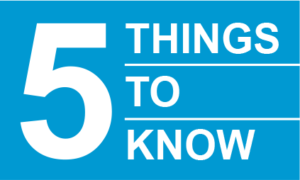COVID-19 IN NURSING HOMES: People living in nursing homes continue to be disproportionately impacted by COVID-19.
- At least 50% of San Diego County’s nursing homes are in outbreak. This not only limits nursing home bed availability/barriers to hospital discharge, but also increases morbidity, mortality, and severe lockdown-induced social isolation of people living in nursing homes.
- Only 50% of people living in nursing homes have received the bivalent COVID-19 booster. That rate has not budged since September 2022. High-quality evidence shows that the bivalent COVID-19 booster reduces nursing home readmissions and mortality compared to the monovalent COVID-19 booster.
- To protect the most vulnerable older people and reduce barriers to hospital discharge caused by COVID-19 outbreaks in nursing homes, the county’s Health & Human Services Agency urges all San Diego County hospitals to develop discharge protocols that include bivalent COVID-19 booster administration for eligible consenting patients.
- Given the success of required hospital influenza vaccinations, hospitals may want to consider coupling the COVID-19 vaccination with their pre-existing influenza protocols (evidence is clear that it is safe to do this).
If hospitals have questions or want to discuss strategies, please contact Lindsey C. Yourman, MD, chief geriatric officer, San Diego County Health & Human Services Agency, at LindseyC.Yourman@sdcounty.ca.gov.
CHA ALERT: Last week, the California Hospital Association (CHA) issued a joint state and federal alert urging all California hospitals to contact their lawmakers to support hospitals with an emergency lifeline of $1.5 billion from the state budget. At the federal level, we must work to protect Medicare and Medicaid funding from budget cuts. Each of your hospitals is asked to call or email your Assembly member, state senator, and U.S. representative and senators by Feb. 28 and let them know about your specific financial challenges, how they impact access to care, and the needs of the communities in their districts.
BEHAVIORAL HEALTH INITIATIVE GRANT FUNDING: The Department of Health Care Services (DHCS), as part of the Children and Youth Behavioral Health Initiative, has released a request for applications seeking proposals for the second round of grant funding to scale evidence-based practices (EBPs) and community-defined evidence practices (CDEPs) across the state. Applications are due by 5 p.m. (PT) on April 10. For the second round of EBP/CDEP grant funding, DHCS seeks proposals from various individuals, organizations, and agencies to scale trauma-informed programs and practices. The funding, which totals $100 million, is designed to improve access to critical behavioral health interventions, including those focused on prevention, early intervention, and resiliency/recovery, for children and youth, specifically those from Black, Indigenous, and people of color, as well as lesbian, gay, bisexual, transgender, queer, and intersex (LGBTQI+) communities.
EXPIRATION OF TEMPORARY WAIVERS: The California Department of Public Health recently issued an All Facilities Letter (AFL) that lists a series of AFLs for hospitals and health care workers that will be rescinded when the state of emergency ends on Feb. 28. They include:
- AFL 20-26.13: Suspension of Regulatory Enforcement of Hospital Requirements. The statutory and regulatory provisions related to the configuration and use of physical space and classification of beds in a hospital were suspended.
- AFL 20-30.9: Suspension of Regulatory Enforcement of Specified Primary Care Clinic and Mobile Health Care Unit Requirements. These specified clinics had licensing requirements and regulatory enforcement suspended in order to conduct COVID-19 treatment, testing and/or vaccinations.
- AFL 20-35.8: Suspension of Professional Certification Requirements for Certified Nurse Assistants. The initial certification, renewal, and expired certification requirements for certified nurse assistants were extended until the state of emergency’s end.
- AFL 20-40.5: Suspension of Specified Regulatory Requirements for Nurse Assistant Training Programs (NATPs). This suspension affected NATPs and nursing facilities that provide instruction and training to nurse assistants seeking certification as certified nurse assistants.
- AFL 20-49.6: Suspension of Professional Certification Requirements for Home Health Aides. This affected various regulatory enforcement requirements.
- AFL 20-57.5: Suspension of Professional Certification Requirements for Home Health Aide Training Programs. Professional certification requirements, amended scopes of practice, and accompanying regulations with respect to home health aides were suspended.
- AFL 21-36.3: Suspension of Regulatory Enforcement of Specified Skilled-Nursing Facility Requirements. The enforcement of space conversion requirements was suspended.
Facilities must be in compliance with the statutory and regulatory requirements by
March 1.
WAIVERS FOR JUSTICE-INVOLVED INDIVIDUALS: On Jan. 26, the Centers for Medicare & Medicaid Services notified California that it is the first state in the nation to receive approval to offer a targeted set of Medicaid services to youth and adults in state prisons, county jails, and youth correctional facilities for up to 90 days prior to release. Through a federal Medicaid 1115 demonstration waiver, the Department of Health Care Services (DHCS) will establish a coordinated community re-entry process that will assist Medi-Cal members leaving incarceration in connecting to the health services they need upon their release. This should result in reduced gaps in care, improved health outcomes, and prevention of unnecessary admissions to inpatient hospitals, psychiatric hospitals, nursing homes, and emergency departments, and reduce overdose, suicide, homelessness, and recidivism. A social media toolkit is available for stakeholders, and more information is available on DHCS’ Justice-Involved Initiative web page.
